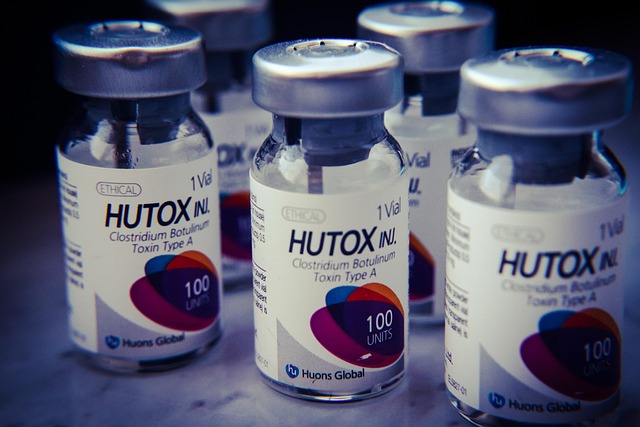Egg Donation: Understanding the Process, Requirements, and Recovery
Egg donation is a life-changing process that helps individuals and couples who are unable to conceive on their own. It involves a woman donating her eggs to another person or couple in need, often through in vitro fertilization (IVF). If you're considering becoming an egg donor or are curious about how the process works, here's a breakdown of what to expect, who might be a good candidate, and the steps involved.

Egg donation represents a profound opportunity for women to help others build families. This reproductive option has helped thousands of individuals and couples experiencing infertility, same-sex couples, and single individuals achieve parenthood. The donation process involves careful screening, medication protocols, and a minor surgical procedure to retrieve eggs. While the physical commitment spans several weeks, the emotional and financial implications can be significant for all parties involved.
What Is the Egg Donation Process?
The egg donation journey typically takes 3-4 months from application to completion. Initially, potential donors undergo comprehensive screening, including medical history evaluation, physical examination, psychological assessment, and genetic testing. Once approved, the donor begins a medication regimen to synchronize her cycle with the recipient’s or to prepare for egg retrieval.
The hormone treatment phase involves daily self-administered injections of follicle-stimulating hormones for about 10-14 days. These medications stimulate the ovaries to produce multiple eggs in a single cycle rather than the typical single egg. Throughout this stimulation phase, donors attend frequent monitoring appointments where ultrasounds and blood tests track follicle development and hormone levels.
When the follicles reach optimal maturity, a trigger shot is administered, preparing the eggs for retrieval. Approximately 36 hours later, the retrieval procedure occurs under light sedation. Using ultrasound guidance, a physician extracts the eggs through a transvaginal procedure lasting about 20-30 minutes.
Egg Donation Eligibility Requirements
Clinics and agencies maintain specific criteria to ensure donor health and optimize success rates. Most programs require donors to be between 21-32 years old, though some accept donors up to age 35. This age range typically yields eggs with higher quality and quantity. Donors must have regular menstrual cycles and be in excellent physical health, with a body mass index (BMI) within a specific range—usually between 19-29.
Genetic screening is mandatory to prevent the transmission of hereditary conditions. Donors undergo testing for infectious diseases, including HIV, hepatitis, and sexually transmitted infections. A comprehensive medical history assessment ensures no significant health issues that could affect egg quality or donor safety.
Psychological evaluation constitutes another critical component of eligibility screening. This assessment helps determine if potential donors fully understand the implications of their decision and can handle the emotional aspects of the process. Many programs also prefer donors who have completed some college education and don’t smoke or use recreational drugs.
Hormone Treatment for Egg Donation
Hormone treatment represents the most intensive phase of the donation process. The medication protocol typically includes birth control pills to synchronize cycles, followed by injectable medications like Lupron to suppress natural ovulation. Follicle stimulating hormones such as Gonal-F, Follistim, or Menopur then stimulate the ovaries to produce multiple mature eggs.
During this stimulation phase, donors experience frequent monitoring through transvaginal ultrasounds and blood tests to track follicular development and estrogen levels. This careful monitoring helps physicians adjust medication dosages as needed and determine the optimal timing for egg retrieval.
Potential side effects during hormone treatment may include mood swings, bloating, breast tenderness, headaches, and injection site discomfort. More serious but rare complications include ovarian hyperstimulation syndrome (OHSS), which causes severe abdominal pain, rapid weight gain, and fluid accumulation. The risk of OHSS is minimized through careful monitoring and medication management.
Recovery After Egg Donation
Following egg retrieval, donors typically rest at the clinic for 1-2 hours before being discharged. Most experience mild to moderate discomfort, including cramping, bloating, and spotting. These symptoms generally subside within a few days. Donors are advised to avoid strenuous physical activity, sexual intercourse, and tampons for about a week to reduce the risk of complications.
The ovaries remain enlarged for several days after retrieval, gradually returning to normal size with the next menstrual period, which typically arrives 7-10 days post-procedure. Most donors can return to work or school the day after retrieval, though some prefer taking 2-3 days off for recovery.
Long-term effects of egg donation remain an area of ongoing research. Current studies suggest no link between hormone stimulation and increased cancer risk or decreased future fertility. However, donors should be aware that the process can carry emotional implications, with some experiencing a range of feelings from pride and satisfaction to unexpected attachment or curiosity about genetic offspring.
Finding Egg Donation Services in Your Area
Prospective donors have several options for connecting with reputable donation programs. Fertility clinics often maintain their own donor databases and recruitment programs. These clinic-based programs typically offer comprehensive medical care and direct communication with the medical team throughout the process.
| Program Type | Typical Compensation | Key Features |
|---|---|---|
| Fertility Clinic Programs | $5,000-$10,000 | Direct medical oversight, local donation, often anonymous |
| Egg Donor Agencies | $8,000-$15,000 | Wider recipient matching, may allow known donation, potential travel |
| University Hospital Programs | $5,000-$8,000 | Research opportunities, academic medical centers, comprehensive care |
| Directed Donation Programs | Varies (often unpaid) | Donation to known recipient (friend/family), personalized process |
Prices, rates, or cost estimates mentioned in this article are based on the latest available information but may change over time. Independent research is advised before making financial decisions.
Egg donor agencies serve as intermediaries between donors and recipients, often offering higher compensation and wider geographic reach. These agencies handle matching, screening, and coordination between donors and fertility clinics. University-affiliated hospital programs may provide donation opportunities as part of research initiatives or clinical services, often with excellent medical oversight.
When researching local donation opportunities, consider factors beyond compensation, including clinic success rates, donor support services, and whether programs offer anonymous, semi-anonymous, or known donation options. Schedule consultations with multiple programs to find the best fit for your preferences and circumstances.
Egg Donation Over 35: Special Considerations
While most donation programs prefer donors under 35, some accept donors up to age 38 for specific situations. Older donors may be considered when they have previously donated successfully, have exceptional genetic backgrounds, or for directed donations to known recipients. However, women over 35 should understand the unique considerations involved.
Egg quality and quantity naturally decline with age, potentially resulting in fewer retrievable eggs and lower success rates. Older donors may require higher medication doses during stimulation, potentially increasing discomfort and risk of side effects. The screening process becomes more rigorous, with additional genetic testing often required.
Despite these challenges, successful donation after 35 remains possible, particularly for women with excellent ovarian reserve as indicated by hormone testing. Potential donors in this age group should have realistic expectations about acceptance rates and the possibility of cycle cancellation if response to stimulation is suboptimal.
Egg donation represents a significant commitment—physically, emotionally, and logistically. While the process offers substantial compensation and the profound satisfaction of helping others build families, potential donors should thoroughly research and consider all aspects before proceeding. Consulting with fertility specialists, reviewing program policies, and connecting with former donors can provide valuable insights for those considering this meaningful journey.
This article is for informational purposes only and should not be considered medical advice. Please consult a qualified healthcare professional for personalized guidance and treatment.




